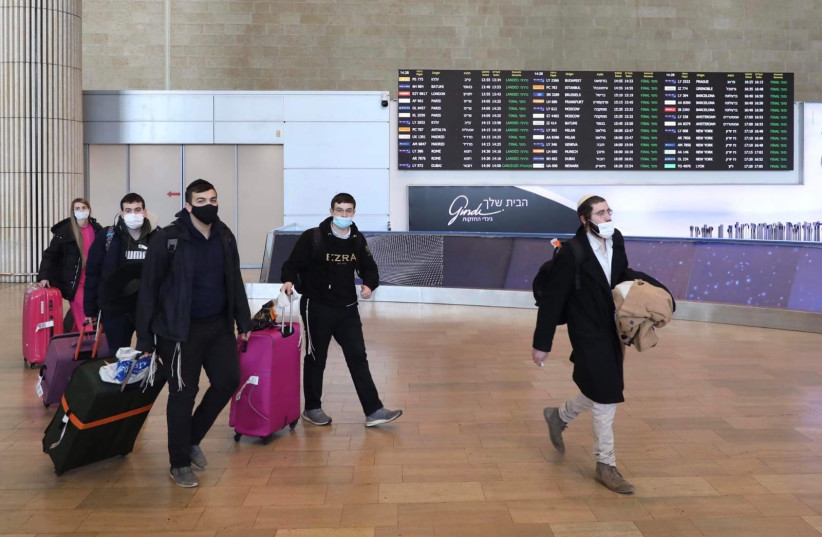Following the tragic situation in Ukraine, after Russia invaded last week, the way Jewish communities around the world of all streams and sizes have united in support of Ukrainian Jews in their hour of need has been heartwarming. Israel, too, is offering humanitarian assistance.
At the same time, there has been a huge leap in requests by Ukraine’s Jews to make aliyah. According to a report by The Jerusalem Post’s Zvika Klein, the government estimates that 10,000 Ukrainians will emigrate to Israel in the coming weeks, out of the 200,000 Ukrainians eligible for Israeli citizenship under the Law of Return.
The Aliyah and Integration Ministry said that it “is prepared for the emergency immigration of Ukrainian Jews, and... is preparing all sectors to assist and absorb any Jew seeking to immigrate to Israel.”
The ministry convened an emergency discussion last week during which Minister Pnina Tamano-Shata established an inter-ministerial team aimed at removing bureaucratic hurdles for potential olim and to issue immigration visas digitally, in light of a drastic increase in applications. This is in addition to reinforcing the Absorption Division at Ben-Gurion Airport and cooperation with the IDF.
On Saturday, the Jewish Agency and the International Fellowship of Christians and Jews (which handles immigration from Ukraine on an ongoing basis) announced that it is opening six aliyah processing stations at Ukrainian border crossings with four countries: Poland, Moldova, Romania and Hungary.

These stations are meant to immediately assist the expected waves of immigration. They are operating in conjunction with the Foreign Ministry and Nativ, the Israeli governmental liaison organization that promotes aliyah. The Diaspora Affairs Ministry has also been active, allocating funding for immediate emergency aid.
The Jewish Agency is increasing its presence in the field to care for the olim until they are able to fly to Israel, preparing to temporarily house them in hotels in the countries bordering Ukraine, with support from the Jewish Federations of North America, Keren Hayesod and other international donors.
The Aliyah and Finance ministries agreed on Thursday to provide additional budgets to actualize the emergency immigration operation. Officials from relevant government ministries and official organizations have been meeting regularly for several weeks to draw up potential evacuation plans.
Israel should continue to supply humanitarian aid to the refugees in general, and to help those who want to make aliyah do so by streamlining the process.
As Ukrainian President Volodymyr Zelensky has banned men between 18 and 60 from leaving Ukraine in order to deploy them in the defense of the country, Israel needs to focus on rescuing the elderly and the young. This should include plans to help Righteous Gentiles and their families who risked their lives during the Holocaust to save Jews during the Nazi occupation, and the hundreds of orphaned or semi-orphaned children being cared for by Chabad and other Jewish organizations.
The rescue efforts should also take into account something that former Prisoner of Zion Natan Sharansky has warned about. A former head of the Jewish Agency, Sharansky has voiced his concern that a mass aliyah from Ukraine at this juncture could play into the hands of the antisemitic trope of dual loyalty. It is worth noting that Zelensky himself is Jewish, but has acted as a role model by determining to stay in Ukraine rather than to flee and set up a government in exile.
Last year, just over 13,000 Jews made aliyah from Eastern Europe to Israel.
What Israel and these international Jewish organizations are doing is heartwarming in this difficult time in Europe. The speed with which the state mobilized is impressive and will no doubt help save lives.
It is part of the Jewish principle of “Kol yisrael arevim zeh lazeh” – all Jews are guarantors for one another – and illustrates how rescuing Jews in need is indeed a major raison d’etre of the Jewish state.
But Israel must realize that rescuing Jews in danger is not enough; the country has to be prepared to welcome them and successfully absorb them once they are here.
